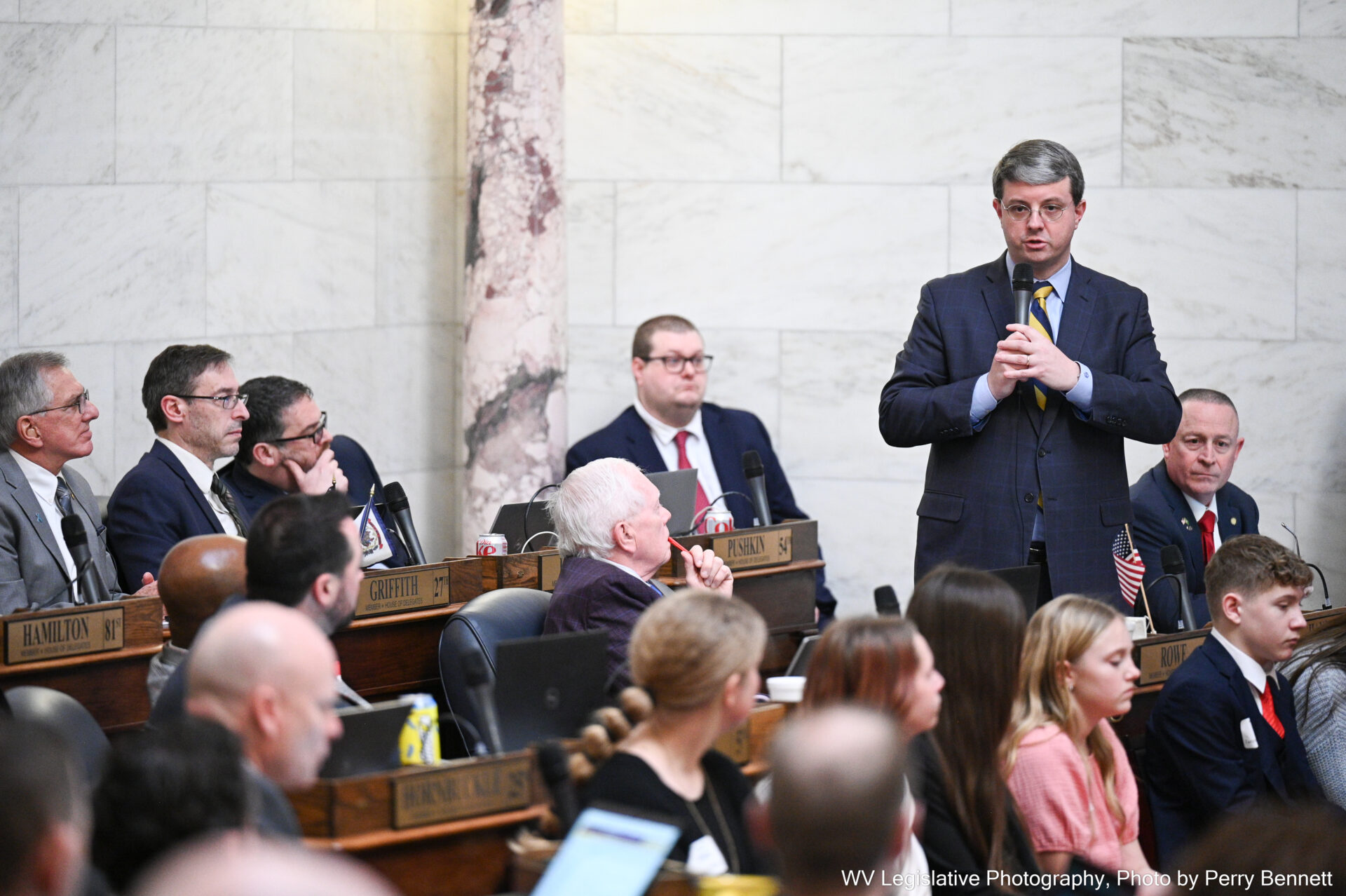A heated and partisan debate in the House of Delegates took place Friday over border security in a resolution to support the state of Texas. But there was full bipartisan support of the Speaker’s bill to help with groundbreaking, disease curing medical efforts at WVU.
Acknowledging and supporting the state of Texas highlighted a lengthy House Concurrent Resolution 64 debate, showing West Virginia support for what Texas is doing, and proposes to do, to secure its border with Mexico.
An amendment to the resolution proposed by Democrats would have the House support the U.S. Congress as it continues to craft federal legislation regarding border security. With amendment objections noting the executive branch taking charge of border security, the amendment failed, 12-81 but the resolution supporting Texas passed 93-0.
In a rare occurrence, Speaker of the House Roger Hanshaw, R-Clay, came down from the podium to speak to House Bill 5014. The proposal calls for $2 million in funding for WVU’s Rockefeller Neuroscience Institute, where Hanshaw said the use of ultrasound to treat Alzheimer’s, Parkinson’s, PTSD and more is ready for clinical trials.
“We have an opportunity to continue leading the world,” Hanshaw said. “Not leading the nation, not leading the state, leading the world in delivering a groundbreaking treatment of therapeutic technology that was published two weeks ago in the New England Journal of Medicine, the world’s foremost journal for academic medicine, and delivering that technology to West Virginians who suffer from conditions that deserve our attention.”
HB5014 passed 93-0 and now goes to the Senate.
